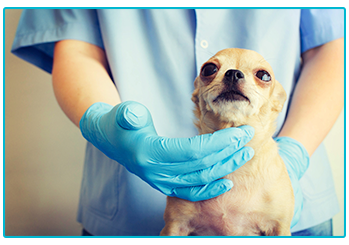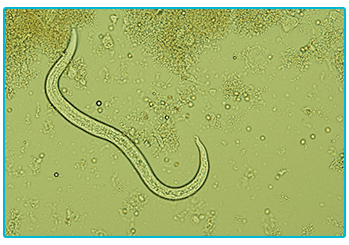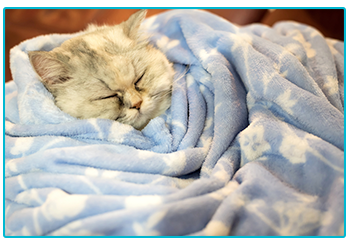There are a number of parasites that can be an issue for our pets, the most common being ticks and fleas. One that’s slightly less well known, but becoming more common, is lungworm! The effects that these can have on dogs has been quite well publicised, but it can also occur in cats! Here at The Insurance Emporium, we hate to see any pet unwell, so we’ve spoken to our animal health expert to find out more about lungworm in dogs and cats.

What is it?
Lungworm, or Angiostrongylus vasorum in dogs and Angiostrongylus abstrusus in cats, is a parasite that affects canines and felines differently. In both animals, the larvae hatch in the lungs. For cats, the adult worms remain in the lungs, and can cause damage to the tissue. In dogs, adult worms reside in the heart and blood vessels.
Where does it come from?

Lungworm larvae are carried by slugs and snails, meaning the problem is more common during spring, as the population of the molluscs increases. Pets can become infected when they eat grass or drink water outside that’s been contaminated by slugs and snails. Cats might also consume birds or rodents that have come into contact with the larvae. Our feline friends can also carry lungworm in their faeces, thereby infecting the environment.

What are the symptoms?
The main signs that your furry friend has this parasite problem can be coughing, wheezing or breathing issues. Dogs might also exhibit lethargy, weight loss, lack of appetite, vomiting and diarrhoea. Lungworm can be more serious for dogs, and they could develop blood clotting problems and neurological symptoms.
What is the treatment?
If you suspect your pet might have picked up lungworm, you should get in touch with your vet. If left untreated it can cause respiratory conditions in both dogs and cats. Treatment and prevention should be simple – you’ll likely already have a monthly worming routine in place for your pet, and this should protect against lungworm. If your cat or dog has picked up worms, you could try switching to a different brand of wormer.
What other steps can I take?
To reduce the risk of lungworm in dogs and cats, you could limit their exposure to snails and slugs, regularly clean anything they use that’s kept outside, and pick up their faeces. You might also attempt to limit hunting behaviour in cats, by ensuring they have a full, balanced diet and are mentally stimulated.
The good news is that if they have picked up lungworm, treatment and prevention of any future mishaps should be simple! However, if you have any concerns about this issue, or any other relating to your pets health, the best thing is to contact your local vet. Keeping an eye out for the symptoms of illness. Acting appropriately should ensure you and your pet continue to have many more adventures together!
All content provided on this blog is for informational purposes only. We make no representations as to the accuracy or completeness of any information on this site or found by following any link on this site. We will not be liable for any errors or omissions in this information nor for the availability of this information. We will not be liable for any loss, injury or damage arising from the display or use of this information. This policy is subject to change at any time.


